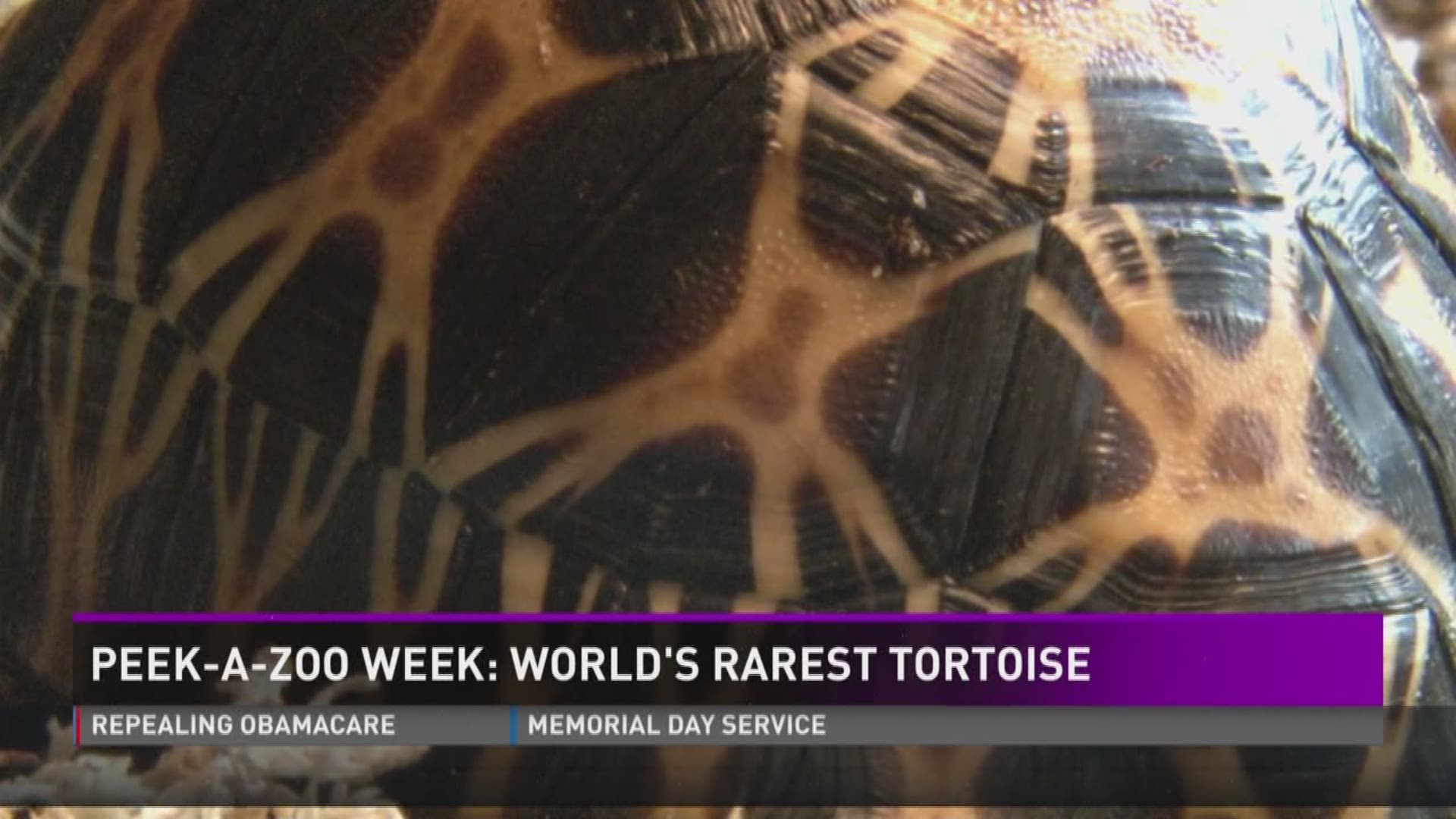Since the 1970's, keepers at Zoo Knoxville have worked to keep rare tortoises from going extinct. Today, their work is more prevalent than ever.
“What people don’t know about turtles and tortoises is that they’re the most endangered class of vertebras in existence. Over half of them are on the verge of some level of endangerment," said Michael Ogle, Curator of Herpetology and Ornithology at Zoo Knoxville.
The rarest species of tortoise in the world, the Ploughshare tortoise, is at Zoo Knoxville. As are three other types of rare tortoises from Madagascar.
“Our tortoise collection has a lot of tortoises from Madagascar. We’re one of only two institutions in the US that have all four endemic species of tortoises,” said Ogle.
Currently, Ploughshare, Radiated, and Flat Tailed tortoises are at Zoo Knoxville.
The radiated tortoise population in the wild has been cut in half during the past 17 years. Much of that is due to smuggling.
“Basically, they take the tortoise, put tape around it except for the head so they don’t move. You’re able to get several hundred in a suitcase and you pay off the right guy at the airport and can get them to Asia where they are sold illegally as pets," said Ogle.
Ogle says an adult female radiated tortoise could sell for $10,000, and that the star-like pattern on their shells is what makes them so desirable.
To help combat the smuggling in Madagascar, Ogle traveled there in 2012.
"They had the (recovered) tortoises and they had the habitat but they had never cared for them. We were able to turn that around and a lot more tortoises survived in Madagascar because of that. That to me is the most important thing I’ve done with these tortoises so far in my career,” said Ogle.
Ogle says the zoo still helps the tortoises in Madagascar by writing husbandry manuals and providing financial assistance.
At the zoo, Ogle and his team also help by breeding several species of endangered tortoises.
"What were trying to establish here along with other institutions is basically an insurance colony. So we do a lot of breeding here to make sure that we have animals available if there’s a need to repatriate or return them to Madagascar,” said Ogle.
The breeding process with tortoises is slow, as you mightexpect. Some species of tortoise do not reach sexual maturity until they're around 15.
On the other hand, the slow aging of tortoises is also helpful to their restoration.
“The good thing is they live a long time. We have avenues to keep this genetic reserve and keep them going until things get better in their homeland,” said Ogle.
Ogle credits biodiversity as the main reason for his- and his teams- work.
"The world is losing biodiversity everywhere. When you can find something that you're good at and you can help- recycling, anything you can do- but if you work with animals and your goal is to propagate them and to breed them you should work with the rarest species that you can and the tortoises of Madagascar is the perfect niche for us,” said Ogle.
The tortoises are on display in the reptile area of Zoo Knoxville.

